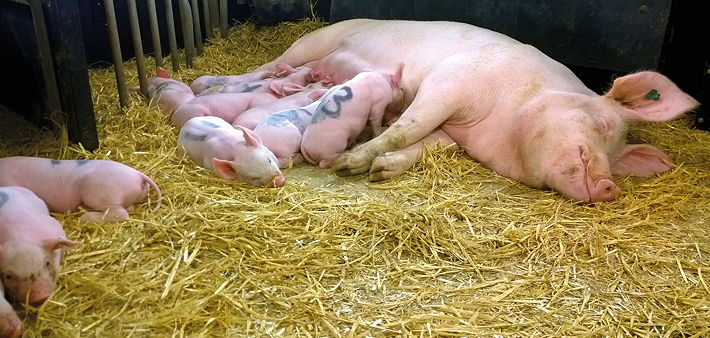The RSPCA has called for the next Government to take measures to protect and enhance animal welfare as it negotiates a future outside the EU.
In its General Election manifesto, the charity urges the main political parties to bring in a new farm support system ‘with one payment that incentivises the use of public money for good farming practices and rewards farmers whose production systems adhere to higher welfare standards’.
The RSPCA backs this up with a call for mandatory method of production labelling on all animal
products. It claims this would ‘help provide a fair and positive future for farmers who are prepared to invest in higher-welfare systems and give consumers clear information when choosing higher welfare food products’.
Echoing livestock industry concerns, it also stresses that any Free Trade Agreement, including with the EU, should ‘include language on animal welfare to ensure its own welfare standards are protected and that UK farmers are not left at a disadvantage to other producers, particularly the EU, its largest export and import market’.
Other key demands as far as farm animals are concerned include:
- A ban on non-stun slaughter, but in the event non-stun slaughter is still allowed, bring in mandatory post-cut stunning particularly for ruminants: the Government should also look at mandatory labelling.
- A ban on the live export of animals to the continent for slaughter or further fattening and introduction of species-specific requirements (informed by science) relating to maximum journey times and travel conditions for all farm animals.
- Mandatory CCTV in all slaughterhouses which can not only be a good deterrent against acts of animal cruelty and poor practices, but can also bring other benefits such as increased security and improved training.
While some of the RSPCA’s manifesto Brexit content will chime with the pig industry, the National Pig Association will take a different approach to the use of farm support funding to incentivise better animal welfare. It will call for the focus to be an measurable animal welfare outcomes, rather than encouraging farmers to switch to particular welfare systems, which it argues are not necessarily good indicators of welfare.




